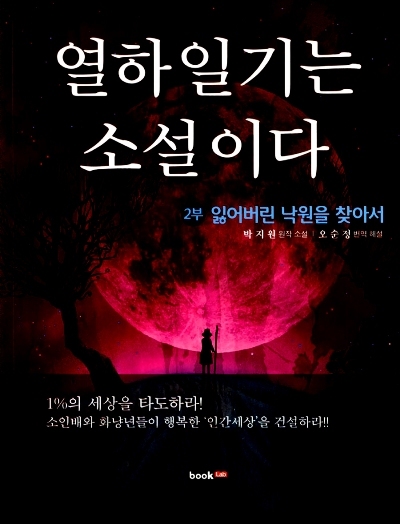 |
Jehol Diary is a Fiction (Book Lab) |
By Park Sui, Intern reporter
A nonfiction companion to a Joseon scholar’s famous travelogue, “Jehol Diary is a Fiction,” attempts to overturn the traditional interpretation of the centuries-old book.
It claims that “Jehol Diary” (‘Yeolha Ilgi’ in Korean) is not a fact-based travelogue but a first-person narrative novel.
“Previous studies, discussions and education on ‘Yeolha Ilgi’ are totally misguided,” Oh Soon-jeong, the author of the book, told The Korea Herald. The 51-year-old author, a veteran accountant living on Jejudo Island, has put out the two-volume book detailing his theory.
“Jehol Diary” is widely regarded as one of the most famous travelogues in South Korea. It was written by Park Ji-won (1737-1805), a leading scholar of the “Silhak,” or Practical Learning, movement in the late Joseon Dynasty.
He was sent to China in 1780 as a delegation to celebrate the 70th anniversary of Emperor Qianlong of Qing China. His traveled to Jehol, a province far west of Beijing where Quanlong was enjoying a holiday at his summer palace.
Jehol Diary records Park’s dramatic trip. During the long trip crossing mainland China, Park could vividly experience the history, religion, literature and many other elements of Qing China which largely contributed to the empire’s golden age. The 26-volume book is generally known as a series introducing the golden days of Qing China and asking its readers to learn and adopt its culture.
Author Oh, however, thinks otherwise. “At first, Park is described as an enthusiastic believer of Sinocentrism. However, it is clearly stated that Park later changes his mind after he saw the emperor and high-profile politicians of Qing China deceiving people for their own sake.” he said.
The author suggested that Park’s travelogue contains his personal wish to create a utopian society and his ultimate goal was to abolish the royal system and introduce democracy in Joseon.
Throughout the book, Oh places detailed commentaries alongside the original text to push for his argument. The two volumes, 424 and 432 pages respectively, have been published by Book Lab (
www.book.co.kr).
(
suipark@heraldcorp.com)








